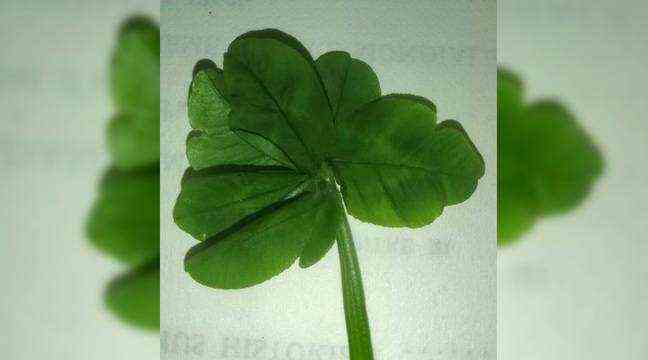The famous 7-leaf clover discovered by Rémi Beauchamp. – RÃ © mi Beauchamp
- An inhabitant of Pas-de-Calais has discovered a very rare seven-leaf clover.
- This sign of luck did not allow him to win the Loto.
- According to a botanist, this find remains exceptional.
Last Sunday, a resident of Montenescourt, near Arras, in Pas-de-Calais, made a discovery which, he hopes, will change his life. In the middle of his garden, he came across a veritable mine of rare clovers, one of which had no less than seven leaves. What to encourage the most rational of mortals to play Loto. What he did.
A truck driver by profession, Rémi Beauchamp took advantage of a morning’s rest at chill in the sun in his garden when his eyes, scanning the grass, came to rest on a four-leaf clover. “I picked it up to give it to my wife. Then I looked again and found many more, ”he explains. At least fifteen, all in the same place, some of which had more than four leaves. Among his harvest, one specimen stood out in particular, this one being adorned with seven leaves. “I looked on the Internet. The last to find a seven-leaf clover is a
young boy in england », Says Rémi.
Listed for five million euros on the Internet
Suddenly, the driver, who is not used to games of chance, let himself be tempted, motivated by this incredible sign of luck. “I went to play Loto and bought a few scratch games,” he admits. Except that the miracle did not take place and Rémi lost everything. But he had not said his last word: “As it is very rare, I put it on sale. on Ebay and on Market place at five million euros. On a misunderstanding, you never know, ”he jokes, acknowledging, however, that no potential buyer had yet come forward. His wife, she would prefer to keep this sign of “prosperity for life”.
“It is indeed extremely rare, which is why we consider it to be lucky. Personally, I have never seen one ”, affirms Emmanuel Catteau, botanist at the Bailleul National Botanical Conservatory. According to the scientist, this is due to a genetic mutation in the plant: “It’s just an accident in the genes that has no consequences. In the same way that one can have a tuft of white hairs in the beard ”, assures the botanist. A mutation, certainly rare, but natural, that nothing allows to link to a possible climate change.

